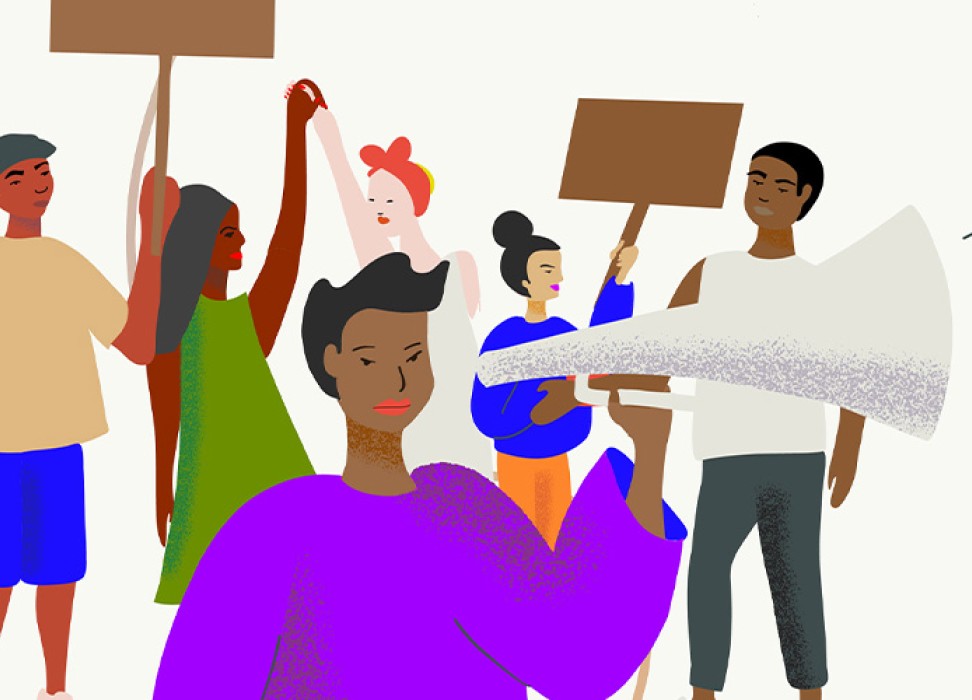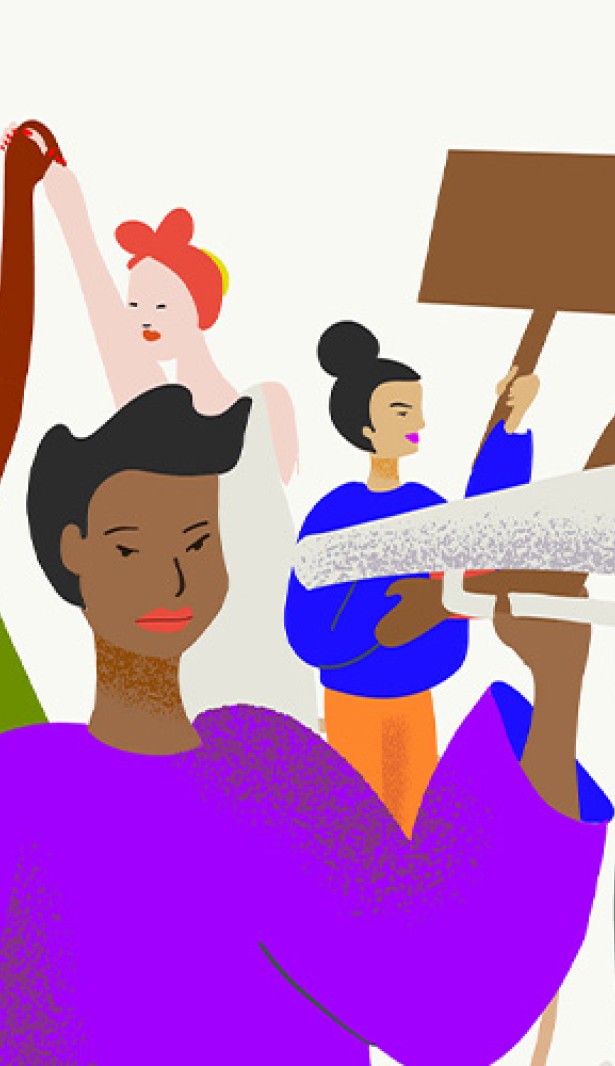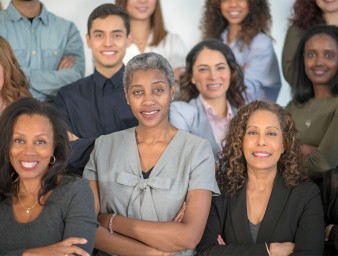International Women’s Day: Women leaders driving change in a post-COVID-19 world
03 March 2021

For more than a year now, women leaders across all ages and walks of life have been instrumental in the response to COVID-19. Ahead of International Women’s Day, we’re celebrating their achievements, their inspiring battles for the human rights of women and girls, and sharing their demands for a better post COVID-19 world. Join us.
“We need to be together. We need to amplify our voices.”
Editar Ochieng is a Kenyan activist fighting for the rights of sexual violence survivors in Kibera, Kenya. As founder and leader of the Feminist for Peace Rights and Justice Centre, her voice is one of many women leading the collective fight for the rights of women and girls amidst a world still reeling from the effects of the COVID-19 pandemic.
A public campaign by UN Human Rights - #IStandWithHer - is now sharing women leaders’ demands for a better post COVID-19 world.
High rates of sexual and domestic violence have been one tragic consequence of the effects of long-term lockdowns and ensuing economic and family stress.
The pandemic has caused a string of negative effects for women, especially those who belong to marginalised or discriminated groups, who have been among the hardest hit.
Women have taken on extra domestic and care work responsibilities, their economic livelihood has faced enormous risk, and they often encounter more difficulty and obstacles in accessing healthcare.
At the same time, women and girls also continue to be largely excluded from COVID-19 recovery efforts and decision-making. For example, a survey of 30 countries with COVID-19 task forces and committees showed that, on average, only one quarter of members were women.
Yet the voices of women and girls to respond to the human rights issues that the pandemic is exacerbating are critical. Their leadership is essential to help us reach a post COVID-19 world, which is more equitable, more just and more inclusive.
To recover better, we need more women in the lead
“To respond to today’s challenges we need social and economic models based on inclusion, not exclusion. Women in all their diversity are an incredible force for change at all levels,” says Veronica Birga, Chief of the Women and Gender Section at UN Human Rights. “Today, their leadership is essential if we want to turn the page and move towards more just, more sustainable societies.”
At the end of 2020, only 21 countries had a female head of State or Government and the proportion of women in senior management roles was a mere 29 percent.
The obstacles to women’s leadership are many and include harmful stereotypes about their roles and capabilities. Yet, repeatedly, including during the pandemic, women have showed an extraordinary capacity to lead, be decisive, informed and compassionate and to provide effective responses.
“When we use the talents of the entire population, when we have women, in all their diversity, in important leadership roles, we witness transformation for the better, not just for women and girls, but for all of society,” continues Birga.
After the pandemic: an enormous opportunity for change
The solidarity and collective strength of feminist leaders to address the multiple human rights struggles arising from the pandemic has already delivered and sustained real and positive change.
Several women heads of State have been widely recognised for their efforts in combatting the virus and its effects on their countries.
Closer to the frontline, women leaders of social justice movements and civil society organisations are reaching vulnerable communities, including victims of domestic and sexual violence.
They are ensuring access to healthcare for those who might not have it and for continuity of essential services only women require.
They are fighting for better rights for domestic workers.
They are shining the spotlight on discrimination and the need for justice.
At a wider level, women leaders continue the battle for climate justice to help protect the world from the devastating effects of future similar crises.
For Editar Ochieng, a better world after COVID-19 is possible. But we need to speak up, she says and we need safe spaces where women can come together and mobilise for change.
In Editar’s ideal world, “women will enjoy their human rights, women will be respected despite their sexuality, women will be respected despite their class, and women will be respected despite where they come from.”
“Our power was taken,” she says. “But we are reclaiming it.”
Please join us to celebrate and honour the achievements of women in leadership. See our campaign here and watch our inspiring stories of women who are leading the way in the fight for women’s and girls’ rights in a post COVID-19 world.
Share your own stories of women leaders who inspire you and are taking a stance to better human rights for women and girls, using the hashtag #IStandWithHer.
And, add your photo to one of our International Women’s Day filters and share it on social media.
3 March 2021




